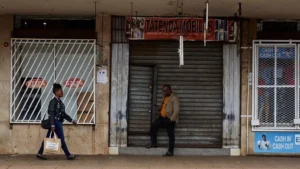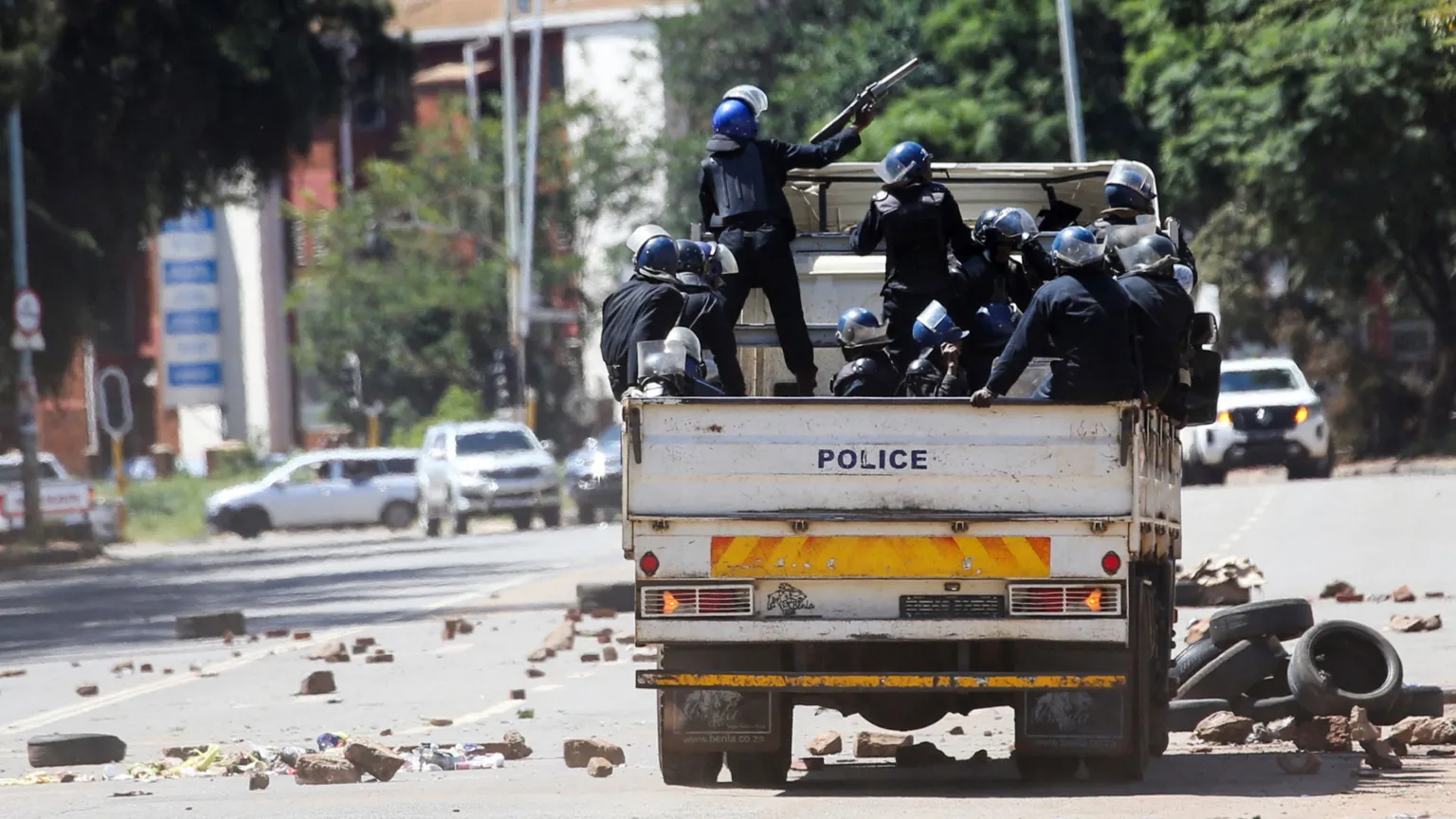In a significant display of civil discontent, major urban centers across Zimbabwe experienced a near-total shutdown on March 31, 2025. This action was in response to calls for nationwide protests against President Emmerson Mnangagwa's proposed term extension beyond 2028.
Background of the Protests
The ruling ZANU-PF party announced intentions in January to extend President Mnangagwa's term by two years, allowing him to remain in power until 2030. Mnangagwa, who assumed office in 2017 following the ousting of Robert Mugabe, is currently serving his final term as stipulated by the 2013 constitution, which limits presidents to two five-year terms.
A faction of war veterans, led by Blessed Geza—also known as Comrade Bombshell—has been vocal in opposing this extension. Initially supporters of Mnangagwa, these veterans now accuse him of attempting to cling to power unlawfully. Geza has utilized social media platforms, particularly YouTube, to rally citizens for an uprising and has expressed support for Vice President Constantino Chiwenga as a potential successor.
Government Response and Public Reaction
Anticipating unrest, Zimbabwean authorities deployed a heavy police presence in the capital, Harare, and other major cities such as Bulawayo. Businesses and schools preemptively closed their doors, resulting in deserted streets and a halt in daily activities. In western Harare, police dispersed a small group of protesters using tear gas.

The government urged citizens to ignore the protest calls and continue with their routines. Despite these appeals, the widespread closures indicate a collective sentiment of dissent. Political analyst Ibbo Mandaza remarked, "The stay-away is a massive statement by the masses of Zimbabwe. Those in power have reason to fear."
Legal and Political Implications
Blessed Geza faces treason charges and has been expelled from ZANU-PF. Authorities are actively seeking his arrest. The veterans' faction remains influential within the party, filling a void left by weakened opposition parties. Mnangagwa has denied intentions to extend his presidency, but critics argue that his supporters are pursuing the plan through proxies.
The recent shutdown in Zimbabwe underscores the nation's political tensions and the populace's growing dissatisfaction with attempts to extend presidential terms. As the situation develops, the international community watches closely, emphasizing the importance of upholding democratic principles and constitutional mandates.

